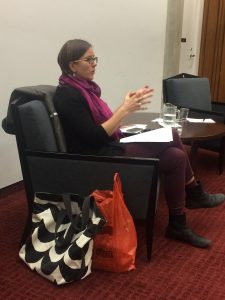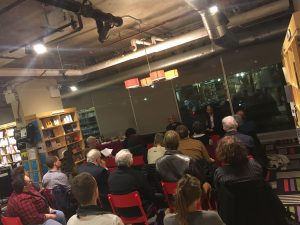 In January 2017 the Center for East European and Russian/Eurasian Studies and the Seminary Co-op Bookstore decided to formalize our partnership and we created A CEERES of Voices, an author-centered series of readings and conversations on books from or about Central and Eastern Europe, Russia, Central Eurasia, and the Caucasus. On October 17, 2017 the CEERES and Seminary Co-op Bookstore and opened this year’s CEERES of Voices with a discussion of The Prague Sonata with novelist Bradford Morrow and Esther Peters. Continue reading
In January 2017 the Center for East European and Russian/Eurasian Studies and the Seminary Co-op Bookstore decided to formalize our partnership and we created A CEERES of Voices, an author-centered series of readings and conversations on books from or about Central and Eastern Europe, Russia, Central Eurasia, and the Caucasus. On October 17, 2017 the CEERES and Seminary Co-op Bookstore and opened this year’s CEERES of Voices with a discussion of The Prague Sonata with novelist Bradford Morrow and Esther Peters. Continue reading
-
Recent Posts
Recent Comments
Archives
Categories
-
Recent Posts
Recent Comments
Archives
Categories


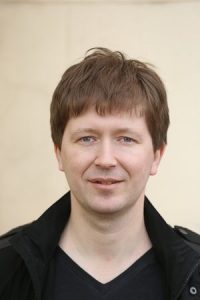
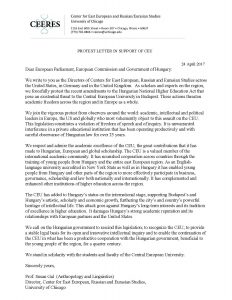
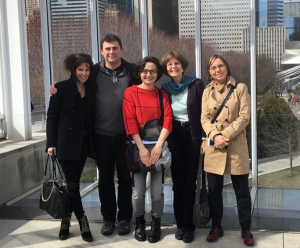
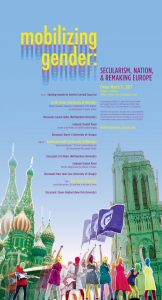 Over the last several years, the entanglement of gender, nation, and secularism has become sharply visible in Europe. From the 2010 “Cologne Attacks,” in Germany, when roving bands of young men (many who were said to be either foreign nationals or refugees) sexually assaulted and robbed young women during New Year’s festivities, to the rise in anti-LGBTQ, misogynist, and xenophobic legislation across the continent, to the precipitous decision last week in the Hungarian Parliament to outlaw the continued operation of the Central European University, a crucial hub for gender studies instruction and research, a diversity of issues across the continent have sparked conversations around gender that continue to reverberate in the international political arena. On Friday, March 31, 2017, scholars from across disciplines gathered to discuss such emergent gendered global linkages at a one day mini-conference, entitled Mobilizing Gender: Secularism, Nation and Remaking Europe, hosted by the University of Chicago. The conference featured scholars from Europe and the United States who drew from both the humanities and the social sciences to probe the day’s themes of gender, sexuality, nationalism, and secularism.
Over the last several years, the entanglement of gender, nation, and secularism has become sharply visible in Europe. From the 2010 “Cologne Attacks,” in Germany, when roving bands of young men (many who were said to be either foreign nationals or refugees) sexually assaulted and robbed young women during New Year’s festivities, to the rise in anti-LGBTQ, misogynist, and xenophobic legislation across the continent, to the precipitous decision last week in the Hungarian Parliament to outlaw the continued operation of the Central European University, a crucial hub for gender studies instruction and research, a diversity of issues across the continent have sparked conversations around gender that continue to reverberate in the international political arena. On Friday, March 31, 2017, scholars from across disciplines gathered to discuss such emergent gendered global linkages at a one day mini-conference, entitled Mobilizing Gender: Secularism, Nation and Remaking Europe, hosted by the University of Chicago. The conference featured scholars from Europe and the United States who drew from both the humanities and the social sciences to probe the day’s themes of gender, sexuality, nationalism, and secularism. 